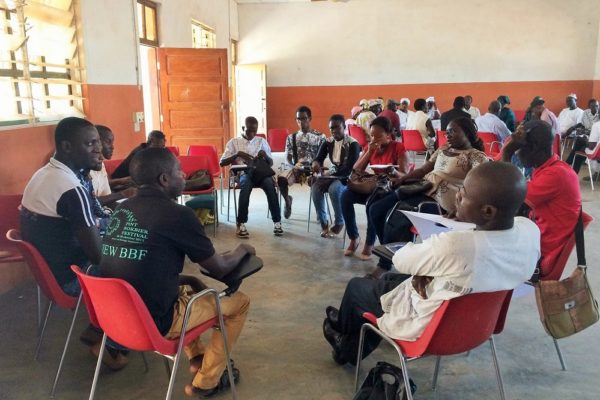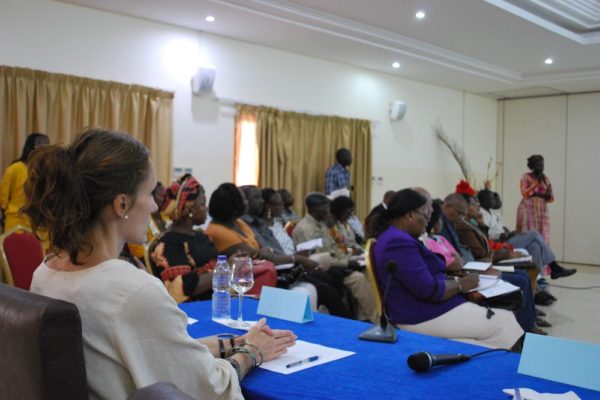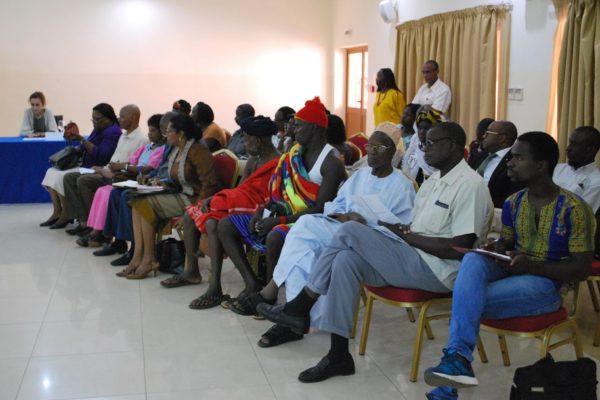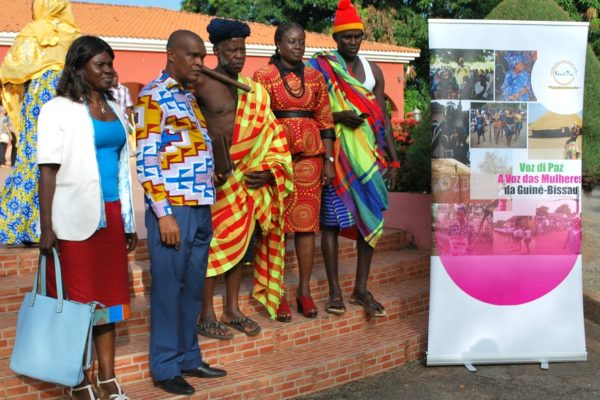Peacebuilding through a gender lens: Enhancing women’s role in governance and conflict resolution in Guinea-Bissau
Inclusion in decision-making, particularly in political spheres critically contributes to the consolidation of peace and the construction of cohesive societies, be it in conflict-affected regions or elsewhere in the world. As a result, addressing the weak participation of women in governance has become a priority at the global level. In Guinea-Bissau, the underrepresentation of women in decision-making is almost systematic. Currently, very few women sit in parliament and the presence of women in the upper ranks of the Defense and Security Forces is very limited.
In order to address this issue, Interpeace and its local partner, Voz di Paz, launched in 2017 a project aimed at contributing to the inclusion of women in governance and conflict resolution. The project, entitled “Towards a New Balance in Guinea-Bissau: creating spaces for a real participation of women in conflict resolution and governance” is funded by the Gender Promotion Initiative of the United Nations Peacebuilding Fund and is being implemented in the eight regions of Guinea-Bissau and in its capital.
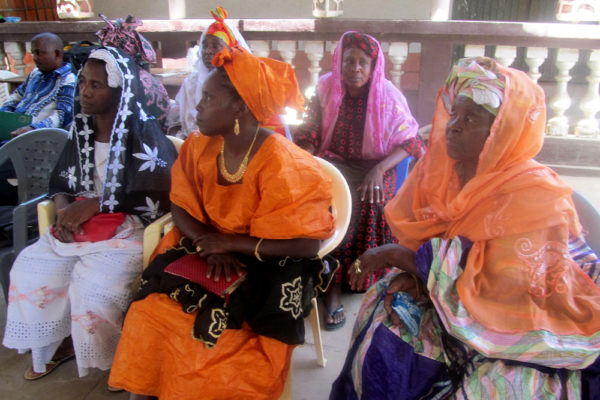
Guinea-Bissau. Photo credit: Voz di Paz
Creating a new balance
The history of Guinea-Bissau has been marked by female figures who left a deep footprint in society. Many women contributed and engaged with men during the liberation war of Guinea-Bissau. These women represent an honor for their country and are often remembered as national heroes. Notwithstanding, following the proclamation of independence, few women continued to play a prominent role in the country’s highest decision-making spheres.
To understand the major obstacles and opportunities to women’s participation and inclusion in decision-making spheres, a participatory research process led by Voz di Paz took place from March to October 2017. More than 600 people participated in this dialogue and research process, including representatives of different political parties, Civil Society Organizations, Defense and Security Forces, religious and traditional leaders, public office and private sector representatives, as well as social communication channels.
Over the course of this period, Voz di Paz facilitated consultations in eleven locations, in the eight regions of Guinea-Bissau, namely in Biombo, Canchungo, São Domingos, Mansoa, Farim, Gabú, Bafatá, Catió, Buba, Bubaque and Bissau, thus ensuring national coverage and local ownership. Parallel to this process, Voz di Paz used audiovisual research to generate dialogue among groups that usually do not meet due to geographical and social distances. The sound collected in these sessions were also used by Voz di Paz to disseminate and raise awareness about the issue at a national level using radio, through which more than 1,000 spots and programmes have been broadcasted since June 2017. This effort ultimately led to the production of a documentary film and a video clip, which portray the perspectives of the population in this research process (watch video clip ici). In addition, to guarantee a greater diffusion of the results of the project, comic strips were produced to narrate in a simpler and clearer way the messages that came out of the consultations.
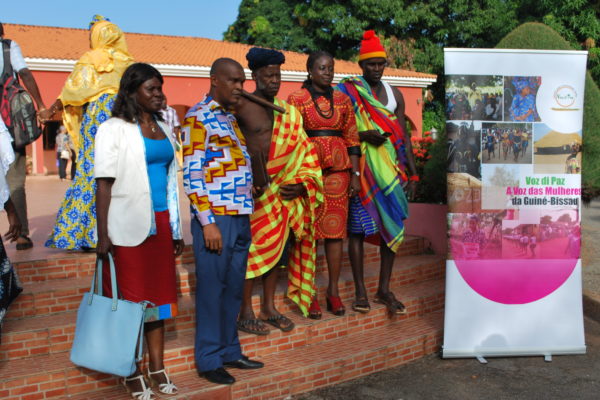
National Conference in Guinea-Bissau. Photo credit: Interpeace
“Fala di Mindjer” – the voices of women
The report entitled, “Fala di Mindjer (The Voices of Women) – Beyond social pressure and institutional barriers: the role of women in decision-making spheres in Guinea Bissau” was launched on March 21, 2018, after a validation process by the stakeholders involved in the research and dialogue process. The report confirms that socio-cultural and political pressures on women create real barriers to their emancipation in decision-making spheres, as well as highlights the traditional social norms that endanger the participation of women in governance.
It specifically sheds light on how social pressure on women, the political game, and the specificities linked to the limited presence of women in the Defense and Security Forces constitute main obstacles to women’s participation and inclusion in decision-making. Moreover, the report “Fala di Mindjer” describes best practices and recommendations that can help enhance women’s role in decision-making in Guinea-Bissau. Building on these, Voz di Paz and Interpeace are now strengthening the capacities of society through training and policy engagement, to contribute to eventually create a new balance in the country.
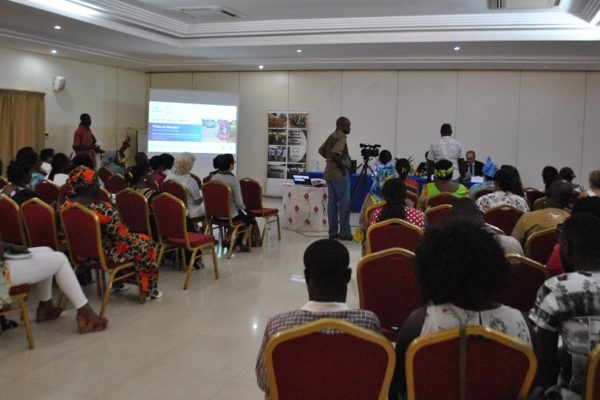
Report launch on March 21, 2018 in Guinea-Bissau. Photo credit: Interpeace
Read the full Report in Portuguese.
Read the key findings of the participatory research in anglais or français.
Watch documentary film with subtitles in Portuguese and English.
